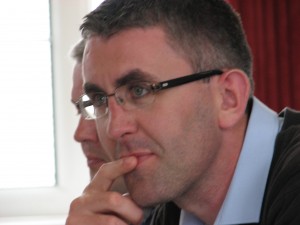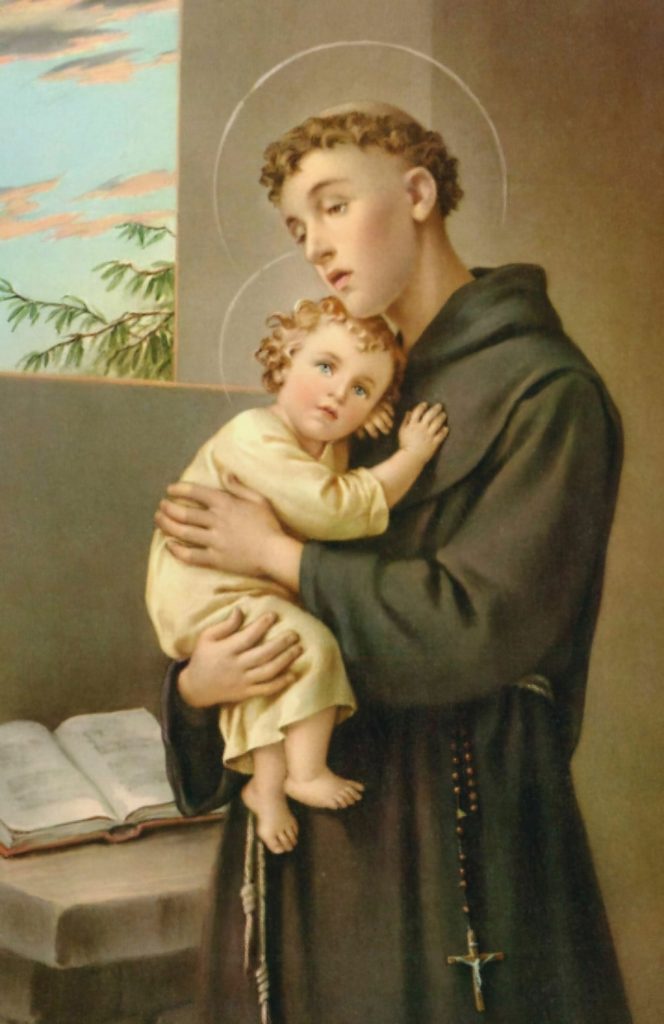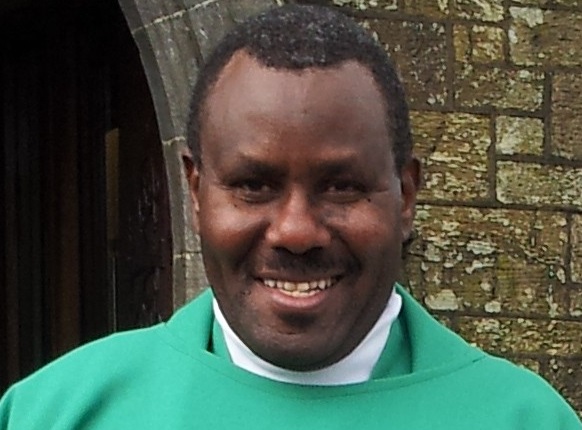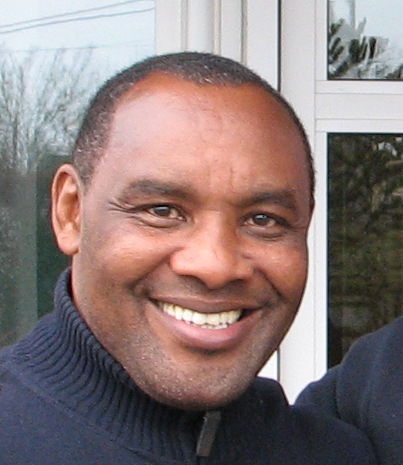Being Transformed and Helping Transformation – Liam O’Donovan SAC
 When Fr. Liam suggested that I base my talk on the Transfiguration I was struggling, with what to talk about. I asked a number of people for ideas and the reoccurring theme was transformation. So the general theme is “Being Transformed and Helping Transformation.”
When Fr. Liam suggested that I base my talk on the Transfiguration I was struggling, with what to talk about. I asked a number of people for ideas and the reoccurring theme was transformation. So the general theme is “Being Transformed and Helping Transformation.”
When I first began to as I read and meditated on the Gospel I couldn’t see transformation. OK, Jesus is transfigured, but, as we will see, the disciples are not transformed by this experience. Their attitude before and after doesn’t seem to change. But if we take into consideration what frames the account of the Transfiguration, the events occurring before and what its leading up to we can see the disciples are being prepared for transformation.
Let’s just imagine the scene for a moment:
Jesus decides to go up the mountain and he brings three of his disciples with him Peter, James and John. A few days earlier the Jesus made the first prediction of his forthcoming passion, his suffering and death. Peter as we know was scandalised and he rebuked Jesus for this: “There’s no way I’m going to let this happen.” He was full of his own ideas of what he wanted. You can just imagine him insisting with Jesus you know, “this is the way it is going to be—let there be no talk of this suffer and dying business.” He wanted to control the situation. But Jesus was quick to set him straight. “Get behind me Satan. He identified Peter with Satan, speaking on behalf of Satan by opposing to the cross. He accused Peter of thinking in human way and not God’s ways. And then he calls all disciples together and announces: You cannot come after me unless deny yourself take up your cross and follow me. Any who saves his life will lose it; anyone who loses his life for my sake and the sake of the Gospel will save it. The disciples thought they had it made; by being close companions to Jesus the Messiah they were going to have honour, power, privilege, wealth and glory. But Jesus completely overturns their ideas teaching them that disciples of the kingdom are to lay down their lives for others in imitation of him.
So as their heading up the mountain they must have been disturbed by these ideas; their heads must have been swirling. There on the mountain Jesus’ glory was revealed. His face shone and his clothing became radiant. For a moment the veil of his humanity, which had been shrouding his divine identity, was lifted. After this glimpse of Jesus’ glory, Peter, James and John were convinced beyond a doubt that Jesus was no mere human teacher, but the Son of God.
So did this experience transform the disciples? Not really; not at all actually. Soon after they were squabbling among themselves about who was the greatest among them. And James and John, who were with Him on the mountain, requested that they would have seats at his right and his left in his glory. They were still in this mind set of personal glory, and prestige, their attitude hadn’t changed a bit.
Their transformation only takes place after they go through the experience of the suffering, death, and resurrection of Jesus. Only then can they enter the life of the Spirit and finally give their own lives in imitation of Christ. What sustained the disciples through this was their experience at the transfiguration. These three who were to lead the disciples were able to endure the terror and tragedy of Christ’s passion because they had had been given a glimpse of the glory of the risen Christ. This gave them strength and hope to persevere.
Relevance for us
So how is this relevant to us as Christian today, as members of the UAC. A predominant theme that the Transfiguration speaks to us of is our prayer life. St. Pope John Paul II said about the our relation to the Transfiguration: “Like the three chosen disciples, the Church contemplates the transfigured face of Christ in order to be confirmed in faith and to avoid being dismayed at his disfigured face on the Cross.” So the story of Transfiguration is directing us to prayer, to contemplate Christ so that we can receive the grace, the strength, the hope we need as we face our daily crosses—the struggles and trials that we encounter in our lives. We can all I’m sure identify with the apostles as they go up the mountain with their hearts full of worry and anxiety. I know I often enter prayer with the distractions of what has happened that day or what burdens lay in the future. But that hour in front of the Blessed Sacrament, this encounter with Jesus, seems to bring a peace to any situation and the courage to face the challenges that come my way.
It’s not that you have to have dramatic experience like the apostles. I once read a story about St. Jean-Marie Vianney (The cure’ of Ars). He once noticed a man come in to the church and stay for hours in front of Jesus in the Blessed Sacrament. The Cure asked the man what do you say during all that time before Jesus in the Eucharist? The man replied, “Nothing, I look at Him and He looks at me.”
What passes between you and the Lord can often be hidden form you—it’s deeper than senses and emotions. As the story of the disciples shows us we’re not in control of what is given to us in prayer. It’s not so much what we say or do, but just gazing at Jesus and obeying the Father’s command “To listen to Him” with an open heart. Allowing the grace of the Lord to pass over us. This is particularly true when we receive the Eucharist, our Transfiguration encounter par excellence, our food for the journey.
The rule St. Vincent Pallotti left for us is the imitation of Christ. Of course he understood that this could only be accomplished by contemplating Christ. He said:
“Never lose sight of the divine Exemplar, Jesus, but always contemplate him with the trust of receiving the grace of imitating Him.”
(All quotes from Pallotti taken from Yearning of a Soul: A study of St. Vincent Pallotti’s Spiritual Doctrine by Flavian Bonifazi, S.A.C)
So in prayer we contemplate how he acted, how he spoke, how he dealt with people, how he prayed. We bring this contemplation to prayer because it’s not just a question of thinking about these ideas, but allowing grace to act in us so that they become part of us. Again Pallotti wrote:
“Every Christian piously enjoys the thought of imitating Jesus, but only a few constantly and really strive to imitate Him because only a few pay attention to it. The more people internalise such religious thought, the more they will strive to imitate Him and, consequently, the more the love of Christ increases in them.”
The truth is that we faced with different challenges and situations than Christ did. Our society, our context, our world is not the same as His was, so we can’t just look at his external actions and say that this is what I have to do in this situation. We need to internalise them, to have his Spirit so that we can do what he would do if he was faced with our challenges and trials. This is what our prayerful contemplation and listening are about.
“To effectively imitate our Lord Jesus Christ, we must above all have His Spirit. Thus, all the interior operations of our soul become similar to those of the same Lord Jesus Christ.”
So as we face the challenges of our lives we have this we can respond almost instinctively as Jesus would because we have his Spirit.
Going down the Mountain toward Jerusalem.
Notice Peter’s reaction to seeing Christ in this glorified state with Moses and Elijah at his side: “It is wonderful for us to be here,” he says. He wanted to build three tents, he wants contain this wonderful experience, to remain on the mountain. But he had to go down the mountain, to follow Jesus on the road to Jerusalem, to his passion. And it’s the same for us. If we want our lives to be transformed we have to follow Jesus on his journey to Jerusalem. In the same way we have to pick up our cross and follow Jesus—our spiritual life is not about remaining in the church or the oratory. Our prayer life enables us to face the challenges and trails of life that ultimately bring transformation.
Jesus said “Unless a grain of wheat falls to the ground and dies it remains only a single grain; but if it dies it yields a rich harvest.” To be fruitful in the apostolate means that we have to enter in the Paschal mystery—to be united to the dying and rising of Jesus in our own life. This after all is a mystery that we enter into at baptism. St Paul wrote:
“Do you not know that all of us who have been baptized into Christ Jesus were baptized into his death? 4 Therefore we have been buried with him by baptism into death, so that, just as Christ was raised from the dead by the glory of the Father, so we too might walk in newness of life.”
(Romans 6:3-4)
So at baptism each of us enters into this paschal Mystery of Christ—we die with him and we rise to a new transformed life. But baptism isn’t just a once off event. It’s something we live out each day of our life. We cooperate with the grace of our baptism by doing what he asked us to do: to deny ourselves to pick up our cross and follow him. By uniting our daily trials and sufferings with his cross and in a sense dying with him we are transformed, brought to a new and resurrected life. Our failures, oppositions, our struggles with sin and temptation, our sickness, troubled relationships, anxieties and fears, our loss and grief these are all sufferings that we have to face in life on way or the other. But if we accept them with the eyes of faith they can bring about a transformation in our lives.
I remember when I began to rediscover my faith in my late twenties I was lucky enough to come across a lay community called the Foyers of Charity. My aunt asked me if I would do a retreat with them and looking back it was a transfiguration experience for me. The whole week was filled with light so much so that I decided to join the community as a lay member soon after. I spent two grace filled years with them and loved every minute of it. However, it was easy for we in a way on one level—as a reserved person that I naturally am I didn’t really have to put myself out there, I could just work quietly in the background. But eventually to priesthood I felt called down the mountain, to follow Jesus on the road to Jerusalem. The truth is even though I was happy, I wasn’t really fulfilled, I wasn’t growing as a Christian. The Lord was calling me to face my fears and the challenges of a more involved in priesthood. There’s no other way to fulfilment or transformation.
Ronald Rolheiser—his a Canadian priest who write for the Irish Catholic, calls this a Spirituality of the Paschal Mystery. This idea that united with Christ we accept and live out the paschal cycle, dying to ourselves and being resurrected/transformed more and more into the image of Christ each day. Just to be clear it’s not that we are to accept everything that comes our way. We don’t accept bad behaviour or abuse. We don’t become a doormat. As Christians we stand up for what is good and right and just and try to bring good order to our relationships and situations. But Jesus clearly calls us to accept these daily crosses that come our way the little and the great. So for example, dying to myself when I’m called to visit this sick or lonely person even though I don’t feel in the mood for it. Or when I part of a group not always wanting to get my own way to control everything, but letting go and giving way to what others think. And this way of acting brings about a transformation in me and brings a greater richness to life.
Of course it’s not easy to accept the cross. There are some that are incredibly difficult to explain. I don’t know if any of you saw Gay Byrne’s interview with Stephen Fry. His an English actor and TV personality; his one of these militant atheists like Richard Dawkins. The main reason for his disbelief is the incredible suffering in the world. How could a good and merciful God allow this to happen? And humanly speaking he has a point it’s a really difficult to accept certain things. But form a Christian perspective, we realise that God the Father did not spare his own Son from the fate of suffering and death, and that through it He has brought the ultimate hope, the ultimate transformation: Resurrection.
Vincent Pallotti certainly lived out this Spirituality of the Paschal Mystery in his life. He understood how essential it was for the Christian life, to the extent that he prayer for suffering. He wrote,
“Grant me, O God, the gift to live perpetually occupied in the most perfect compassion for all the mental and physical pains suffered by Jesus and Mary…Deign further to give me now and forever, with perfect fullness, the painful and meritorious participation in all those pains suffered by Jesus and Mary.”
And to his followers he encouraged:
“Long for food as you long for the cross and long for the cross as you long for food.”
It’s not that he had a morbid infatuation for suffering; it’s not that he saw it as an end in itself. He realised it was essential to bring about transformation in his life to make him more and more into the image of Christ. He always had the apostolate in the forefront of his mind.
“The more mortification and suffering we endure out of love to imitate Jesus in His sufferings, the more we shall have the grace to do the work of eternal life.” St. Vincent Pallotti
So the more we are transformed by our crosses the more grace can flow through us into the world. Pallotti in fact prayed to become a ‘Prodigy of God’s Mercy’ an outstanding example of how God’s grace can transform the most miserable sinner & nothingness as he Pallotti referred to himself.
“My God, I ask You that my mind and heart be always activated by an affectionate feeling of trust that you will work a miracle of mercy upon me, that you will do this by communicating to me many graces, favours, gifts and mercies for the purification and sanctification of my soul, and that You will transform me into You. Thus You, the abyss of mercy, will shine brightly in me, the abyss of misery.”
This is what his acceptance and even desire for suffering was about for Pallotti. To be transformed to the extent that Christ himself would be see in Pallotti. And this is the result of our suffering with Christ, transformation into his image, that Christ will shine through us and bring hope to the suffering world. That we manifest God to others, that in a sense we bring a Transfiguration experience to others as the resurrected Christ shines through us. So before we say anything we proclaim the gospel to others. Pallotti’s life is a testament to this truth.
The Paschal mystery is the beating heart of the Church’s mission! And if we remain within this mystery, we are sheltered both from a worldly and triumphalistic view of mission and from the discouragement that can result from trials and failures…And it is from the Cross, the supreme act of mercy and love, that we are reborn as a “new creation.” (Pope Francis to Seminarians, Novices and Those Discerning Their Vocation, Homily of Vatican Basilica Sunday, 7 July 2013)









